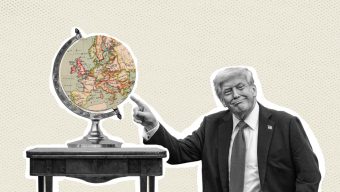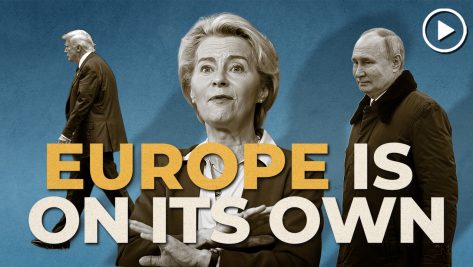What Is the Future of Transatlantic Relations?
The war in Ukraine represents a crossroads in the United States’ dealings with Europe, here Waya Quiviger analyzes how this relationship is set to evolve in the coming years.
© IE Insights.
Transcription
The invasion of Ukraine was a turning point in recent transatlantic relations. It galvanized EU-US ties and led to unprecedented cooperation and coordination on Russian sanctions and military support to Ukraine. Just to give you a few numbers, in February of this year, America had pledged over $70 billion of military, financial and humanitarian aid to Ukraine, and European countries and EU institutions had pledged about $62 billion.
But beyond Ukraine, questions remain on the future of the transatlantic relationship and how it will evolve in a context where America is no longer the sole superpower, it is increasingly being challenged by China. And in a world where the EU is trying to find a role. So in this context, we see several clouds on the horizon in an otherwise clear sky.
So the first worry is the upcoming election in the United States in 2024. European allies worry that this will mean that the US will turn inwards and focus on domestic policies, as countries tend to do in an election year. And they worry that this will translate into less support for Ukraine. If a Republican candidate wins, this will certainly lead to less support for Ukraine.
Governor DeSantis called the war a “territorial dispute”. Trump claimed that if he were president, he could end the war in 24 hours. What he didn’t say is how and how that would leave Ukraine in terms of its territorial integrity. “If I’m president, I will have that war settled in one day, 24 hours. They both have weaknesses and they both have strengths.
And within 24 hours, that war will be settled. It’ll be over.” Another worry and perhaps the biggest cause for concern is this increasing divide between European allies and the United States on how to address China, how to best handle China. Washington has adopted an increasingly hawkish stance towards China, but European allies prefer to forge their own path. They don’t want to be bullied into choosing sides.
Recent delegations to China, such as Germany, France and Spain clearly demonstrate that European countries want to engage with China. And certainly in terms of trade. Macron went to China in April and he voiced this ambivalence towards China and America. He said that European allies shouldn’t necessarily follow the United States when it comes to Taiwan and that it might not be in European countries’ interest to escalate the crisis.
This clearly shows that at least France and maybe other European countries are more ambivalent about how to address China than America is. And the third and perhaps last cause for concern, at least in this, the current state of transatlantic relations is trade. The recent Inflation Reduction Act that was passed last year led to less inflation in America and obviously a shift to clean energy.
So this was heralded as a fundamental piece of climate policy by the European allies, but it was also criticized as disguised protectionism and by American provisions really harmed European interests. So as a response, the EU has decided to pass some legislature of its own in order to assist European companies. To conclude, transatlantic relations need to adapt to an evolving geopolitical landscape.
European and American allies need to understand that the world has changed. China is now a global influence. Countries in the Global South are turning to it as a superpower. They are disenchanted with the international liberal order that the West or the Global West created. They think that this international liberal order has lost its shine and luster. US and American allies need to overcome divisions on China and trade in order to also address the concerns of the rest of the world.










